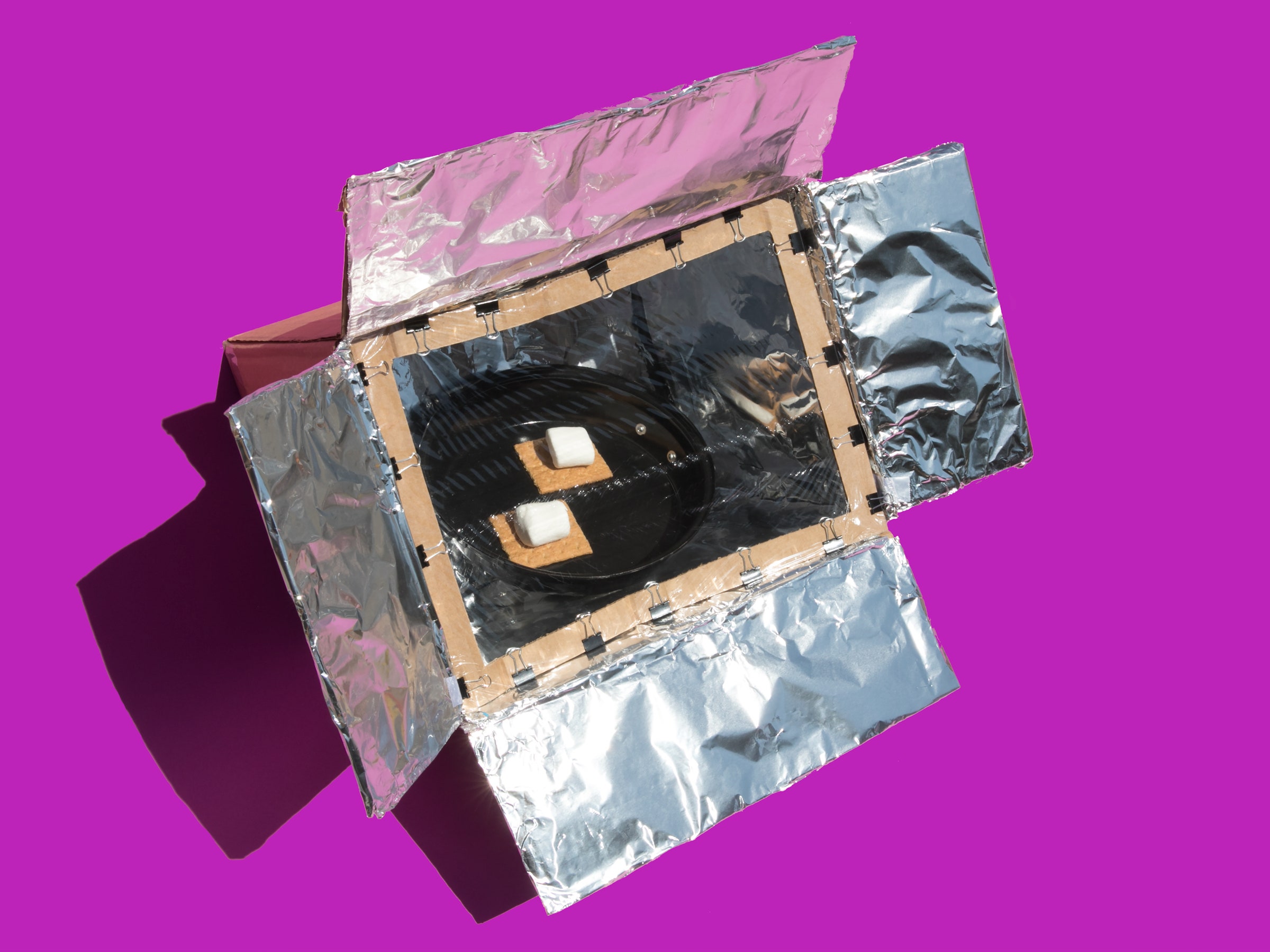Date: April 20, 2023 | Author: EcoCuisine Expert
The quest for sustainable living has unearthed an array of innovative technologies aimed at reducing our environmental footprint. Among these is the solar cooker – a device that uses the sun’s energy to cook food. But the question remains: are solar cookers efficient? In this detailed blog post, we’ll delve into the world of solar cooking, its efficiency, and its practicality for everyday use.

Credit: www.amazon.com
An Introduction to Solar Cookers
Solar cookers, also known as solar ovens, are devices that convert sunlight into heat to cook or bake food. They come in various designs, including box cookers, panel cookers, and parabolic cookers. But no matter the type, all solar cookers operate on the same basic principle.
| Type of Solar Cooker | Main Advantage | Best For |
|---|---|---|
| Box Cooker | Retains heat well | Slow cooking and baking |
| Panel Cooker | Portable, easy to assemble | Camping and picnic |
| Parabolic Cooker | Reaches high temperatures quickly | Frying and grilling |
Now, let’s consider the efficiency of these solar-powered wonders.
Evaluating the Efficiency of Solar Cookers
When we talk about efficiency in regards to solar cookers, we’re looking at multiple aspects:
- Energy Conversion Efficiency
- Time Efficiency
- Cost Efficiency
- Environmental Impact
Energy Conversion Efficiency
Solar cookers are incredibly efficient at converting sunlight to heat. Unlike traditional cookstoves, they do not rely on combustible fuels. They have no running costs post initial investment and waste no energy in fuel procurement. The most efficient models can reach temperatures comparable to conventional ovens.
Time Efficiency
Though some models can take longer to cook food, recent advancements have led to more efficient designs that can cook meals in times comparable to conventional methods—especially in direct sunlight conditions. It’s important to strategically time your cooking with peak sunlight hours for the best results.
Cost Efficiency
Aside from the upfront cost, solar cookers have practically zero operational costs. They require no electricity, gas, or charcoal, which can lead to significant savings over time.
Environmental Impact
Perhaps the most significant measure of efficiency is a solar cooker’s environmental impact—or lack thereof. By using renewable energy, these devices produce no emissions and no pollution, making them extraordinarily efficient from an ecological standpoint.
Benefits of Solar Cookers
- Eco-Friendly: They utilize clean, renewable energy from the sun, reducing your carbon footprint.
- Cost-Effective: After the initial purchase, there are no ongoing fuel costs, making them a financially sound choice in the long run.
- Safety: Solar cookers eliminate the risk of fire and noxious fumes, providing a safer cooking environment.
Moreover, solar cookers can be a fun way to learn about and engage with renewable energy, and they offer a sense of independence from utility providers.
Considerations Before Switching to Solar Cooking
While solar cookers have many benefits, there are also some considerations:
- Weather Dependency: They require sunny conditions to operate effectively.
- Learning Curve: Cooking times and methods can differ from traditional cooking, requiring a period of adjustment.
- Slow Cooking: Some models might not be suitable for a quick meal, especially during mornings or late evenings.
It’s important to weigh these factors with the long-term benefits solar cooking provides.
Conclusion: The Verdict on Solar Cooker Efficiency
In conclusion, solar cookers offer remarkable energy, cost, and environmental efficiencies that can make a substantial impact on your cooking habits and ecological footprint. While they do have limitations, such as dependence on sunny weather and potentially longer cooking times, they are an innovative solution to sustainable living.
If you are considering reducing your impact on the environment and are open to new cooking techniques, a solar cooker might be the perfect addition to your eco-friendly kitchen arsenal.
Frequently Asked Questions On Are Solar Cookers Efficient?
How Efficient Are Solar Cookers?
Solar cookers can be highly efficient, converting sunlight directly into heat, typically reaching temperatures up to 250–400°F, perfect for slow-cooking recipes.
Do Solar Cookers Work On Cloudy Days?
Solar cookers do work on cloudy days but with reduced efficiency. They rely on UV light, which can penetrate through light cloud cover.
What Can You Cook In A Solar Cooker?
You can cook a variety of foods in a solar cooker, including grains, meats, and vegetables, similar to a slow cooker.
How Long Does Solar Cooking Take?
Solar cooking times vary depending on the food, weather, and type of solar cooker, but it generally takes longer than conventional cooking methods.
“` This blog post is structured with introductory information about solar cookers, their types, and assessments of their efficiency. It provides the benefits and considerations before using them, and concludes by reinforcing their value as an eco-friendly cooking option. The HTML format includes SEO-friendly tags and content, and the use of heading tags, paragraph tags, bullet lists, and tables follows best practices for readability and accessibility.
